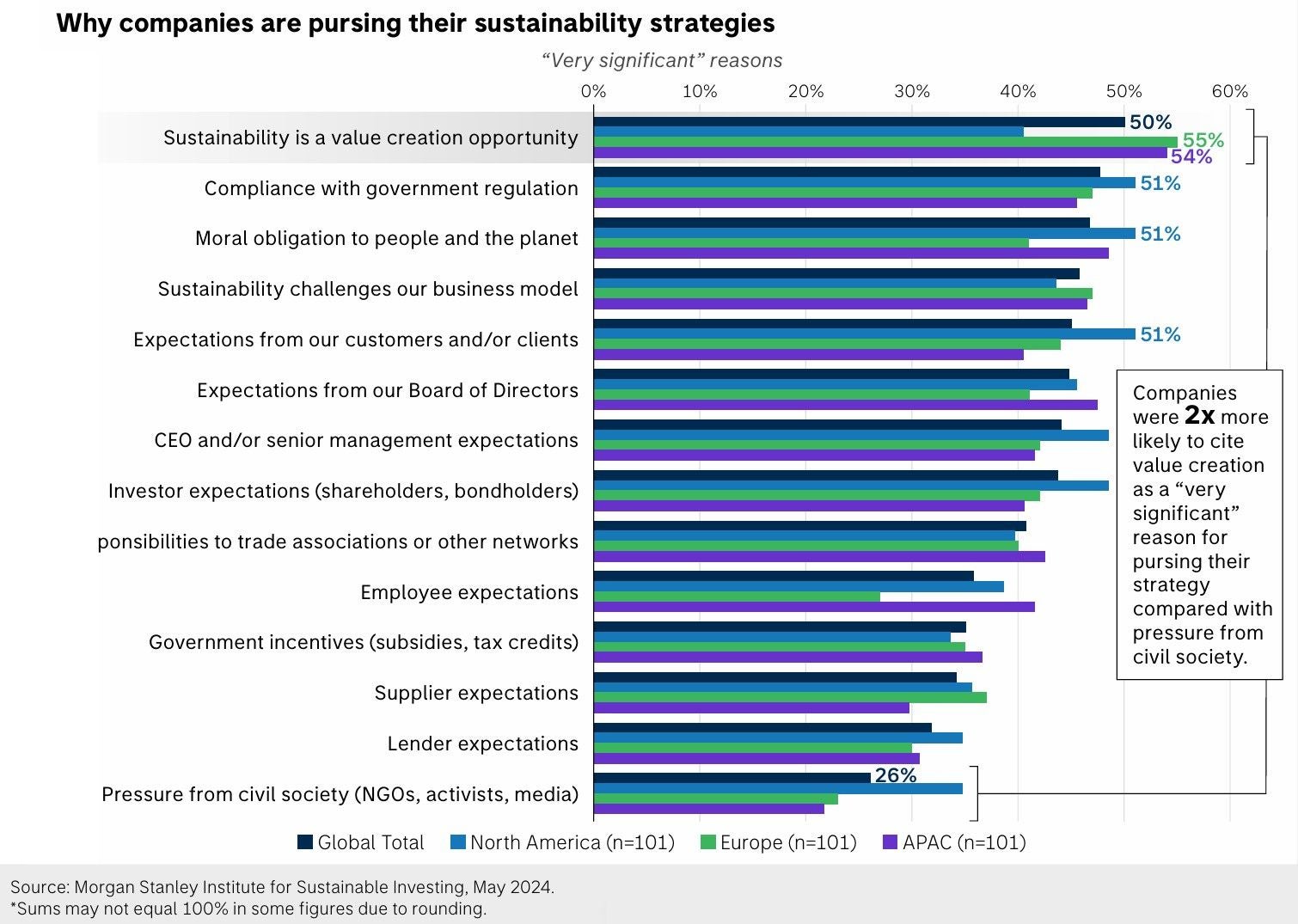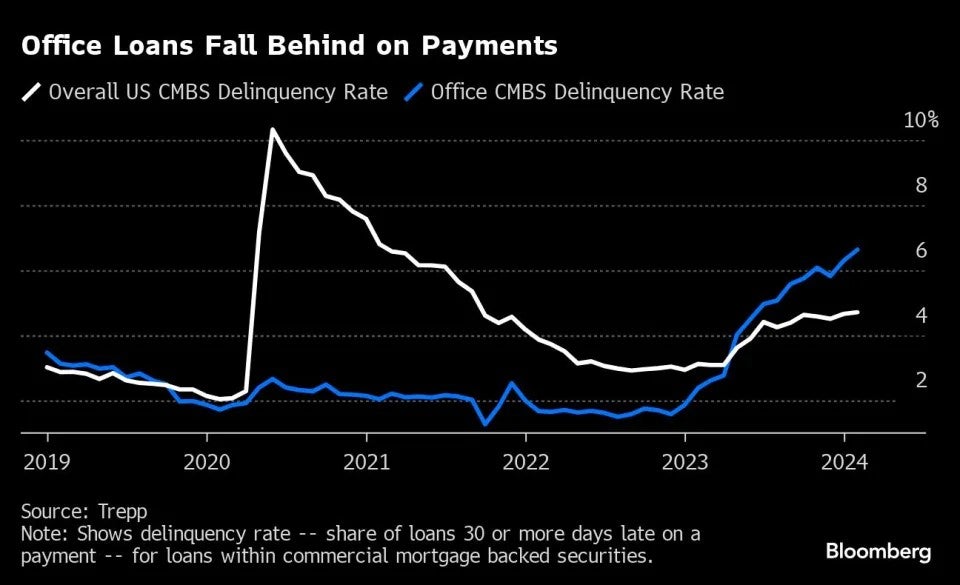DKI had Enrique Abeyta from HX Research on to discuss Talen Energy TLNE. We’ve been positive on nuclear energy and uranium so his description of the value of Talen’s nuclear plant and high-priced energy sales contract was welcome. Nvidia reported earnings. Everyone likes to joke that it’s the “most important earnings announcement of our lifetime”, but that one stock has been responsible for much of the equity index gains of the past two years. Target sales are weak while luxury watch sales are trending higher. Do we have one economy or two? Companies like to brag about their ESG and DEI initiatives when asked in public. Are they really dedicated or just saying what they think people want to hear? Finally, commercial real estate problems have advanced to the point where even the most secure debt-holders are losing a lot of money.
This week, we’ll address the following topics:
-
DKI hosts Enrique Abeyta @EnriqueAbeyta on Talen Energy $TLNE.
-
Nvidia NVDA delivers the most important earnings call of our lifetime…until next quarter.
-
Target TGT and watch sales disagree about the economy.
-
Companies say they’re dedicated to environmental and social goals. Do they live up to that, or is it just talk to appear enlightened?
-
Commercial real estate equity investors aren’t the only ones having a hard time. Debt-holders getting wiped out as well.
A special round of applause for DKI Intern, Andrew Brown, who finished his final exams and has significantly upped his significant contributions to this week’s 5 Things. We are excited (but not surprised) to see him progressing so quickly.
Ready for a new week of the most important analysis ever? Let’s dive in:
-
DKI Hosts Enrique Abeyta on Talen Energy:
This week, DKI hosted Enrique Abeyta @EnriqueAbeyta of HX Research, who shared his optimistic outlook on Talen Energy $TLNE. Talen, an Independent Power Producer (IPP), owns power generation assets, including the Susquehanna Steam Electric Station, the 6th largest nuclear power plant in the U.S. After facing significant challenges, including bankruptcy in 2022, Talen has restructured and launched a datacenter business, which was recently sold to Amazon Web Services (AWS) for $650 million. Talen Energy's total enterprise value is approximately $7 billion. However, Enrique notes that Talen’s Susquehanna plant alone is worth an inflation-adjusted $24 billion, and Southern Company recently completed a similar capacity plant for $30 billion.

A round of applause to Enrique and HX Research for this performance.
DKI Takeaway: DKI has long been bullish on nuclear power and uranium. During the webinar, Enrique highlighted three positive catalysts for nuclear energy and uranium. First, the substantial energy required to power electric vehicles; second, the reshoring of manufacturing initiated by the Trump administration and has continued; and third, the rapid growth of AI and the increasing demand for data storage facilities. $AMZN is paying above-market rates to $TLNE to secure reliable baseload generation for its recently-purchased datacenter. Uranium and nuclear energy have been a great growth investment and also an excellent inflation hedge. DKI continues to hold uranium as demand is outstripping supply and the dollar loses purchasing power.
-
Nvidia Delivers the Most Important Earnings Call Ever - for Now:
Nvidia $NVDA stock continues to surge due to incredible revenue growth from its position as the driving force behind the current AI revolution. The conversion of traditional data centers into AI focused data centers, termed "AI Factories" is behind much of that growth. Bolstered by remarkable increases in revenue and stock price, Nvidia has recently announced plans for a 10 to 1 stock split, scheduled to take effect on June 7, 2024, alongside a substantial increase in their quarterly dividend from $.04 to $.10. The dominance of Nvidia's growth trajectory has not only propelled the company's success, but has also been the primary driver behind positive S&P 500 returns so far this year.

We can debate the valuation, but the fundamental performance has been incredible.
DKI Takeaway: Nvidia's $NVDA rapid growth in earnings is driving the stock to new highs and is buoying other companies with its strong performance. Nvidia's success is well-deserved, but other companies in the sector will need to perform at its level to warrant continued high stock prices. Inflection points in technology has often led to stock bubbles and parts of the AI industry could be the next in line. Nevertheless, Nvidia continues to surpass analysts' estimates and drive innovation in the chip industry. While it’s easy to laugh about the constant hype of “most important earnings release of all-time”, $NVDA has been a massive contributor to equity index returns for the past two years.
-
Target $TGT and Watch Sales Disagree on the Economy:
Target's latest earnings report reveals inflation's impact on consumers. The retailer showed declines in both food and discretionary sales. Sales didn't just fall; customer traffic also decreased by 1.9% in Q1. In contrast, UK-based Watches of Switzerland saw its certified pre-owned watch revenue nearly double compared to the previous quarter. This highlights an intriguing disparity: while inflation significantly affects most Americans' discretionary and food spending, its impact on the wealthy appears minimal.

Not a huge decrease, but not the direction they wanted either.
DKI Takeaway: DKI has been highlighting contradictory economic data and saying we have a bifurcated economy. Target’s weak sales indicates the consumer is feeling financial pressure from inflation. While sales at Target disappointed, there was growth in the secondhand watch market. Watch sales often indicate a strong economy. The wealthy benefit from higher asset prices while a larger bill at the grocery store is less important to them. So much government spending is done in the name of helping the “little guy”, but that spending is creating inflation that’s crushing their standard of living.
-
Your Favorite Company Might Not be Telling the Truth About Non-Financial Goals:
This week, Morgan Stanley published a survey of 300 large companies with revenue exceeding $100MM. Asked about their non-financial goals typically summed up as ESG (environmental, social, and governance), half the companies surveyed said they believe sustainability and social goals are a significant value creation opportunity. Many added that having socially popular policies helped them raise capital or get bank loans making non-financial considerations important to these companies. The results seem clear, but we question whether these companies believe what they say in public surveys.

Do they believe this or are they all talk?
DKI Takeaway: We question the methodology of only surveying the largest companies. Ford has lost billions pursuing electric vehicle plans that are lauded in the press, but unpopular with customers. As one of the world’s largest automakers, Ford can absorb those losses, but smaller companies and family businesses would have had to declare bankruptcy. In addition, when faced with financial challenges, these large companies are less high-minded. Videoconferencing company, Zoom, recently laid off its diversity, equity, and inclusion team. Google and Meta (formerly Facebook) cut their DEI programs after promising to grow them. ESG employment in the US is falling. We draw two conclusions. First, the study was flawed in its methodology. Second, companies talk about non-financial goals, but often take actions that contradict their talk.
-
The Problems in Commercial Real Estate are Getting Worse:
Previously, we’ve written about issues in commercial real estate and have noted that many buildings sold for a fraction of the purchase price from last decade. It now appears the situation is deteriorating. Buyers of the highest tranche of debt for 1740 Broadway in Manhattan lost more than 25% of their investment. While seeing a stock go down by 25% isn’t unusual, taking losses of that size in the high-quality bond market is a problem. In addition, when the highest-rated debt loses money, that also means the equity and the five subordinate credit tranches were completely wiped out.

It will be years before office space demand matches current supply.
DKI Takeaway: There’s been a lot of analysis this year showing how commercial real estate is less leveraged and the banks are less exposed than we saw with residential collateralized mortgage-backed securities in 2008. The probability that this gets bad enough to crash the banking sector is not zero, but is relatively low. However, pretending things are fine when they’re not isn’t helpful either. A CMBS strategist at Barclays said “These losses may be a sign that the commercial real estate market is starting to hit rock bottom”. What?! Holders of AAA-rated bonds just got crushed for the first time this cycle. That’s not a sign that things are getting better. I’ve heard rumors that Washington DC is already planning a bailout for commercial real estate investors. DKI thinks that would be a terrible idea. Capitalism and good asset allocation decisions have to come with the possibility of failure. Bad decisions will and should have uncomfortable outcomes.
Information contained in this report, and in each of its reports, is believed by Deep Knowledge Investing (“DKI”) to be accurate and/or derived from sources which it believes to be reliable; however, such information is presented without warranty of any kind, whether express or implied. DKI makes no representation as to the completeness, timeliness, accuracy or soundness of the information and opinions contained therein or regarding any results that may be obtained from their use. The information and opinions contained in this report and in each of our reports and all other DKI Services shall not obligate DKI to provide updated or similar information in the future, except to the extent it is required by law to do so.
The information we provide in this and in each of our reports, is publicly available. This report and each of our reports are neither an offer nor a solicitation to buy or sell securities. All expressions of opinion in this and in each of our reports are precisely that. Our opinions are subject to change, which DKI may not convey. DKI, affiliates of DKI or its principal or others associated with DKI may have, taken or sold, or may in the future take or sell positions in securities of companies about which we write, without disclosing any such transactions.
None of the information we provide or the opinions we express, including those in this report, or in any of our reports, are advice of any kind, including, without limitation, advice that investment in a company’s securities is prudent or suitable for any investor. In making any investment decision, each investor should consult with and rely on his or its own investigation, due diligence and the recommendations of investment professionals whom the investor has engaged for that purpose.
In no event shall DKI be liable, based on this or any of its reports, or on any information or opinions DKI expresses or provides for any losses or damages of any kind or nature including, without limitation, costs, liabilities, trading losses, expenses (including, without limitation, attorneys’ fees), direct, indirect, punitive, incidental, special or consequential damages.
Edge Rankings
Price Trend
© 2025 Benzinga.com. Benzinga does not provide investment advice. All rights reserved.
Trade confidently with insights and alerts from analyst ratings, free reports and breaking news that affects the stocks you care about.